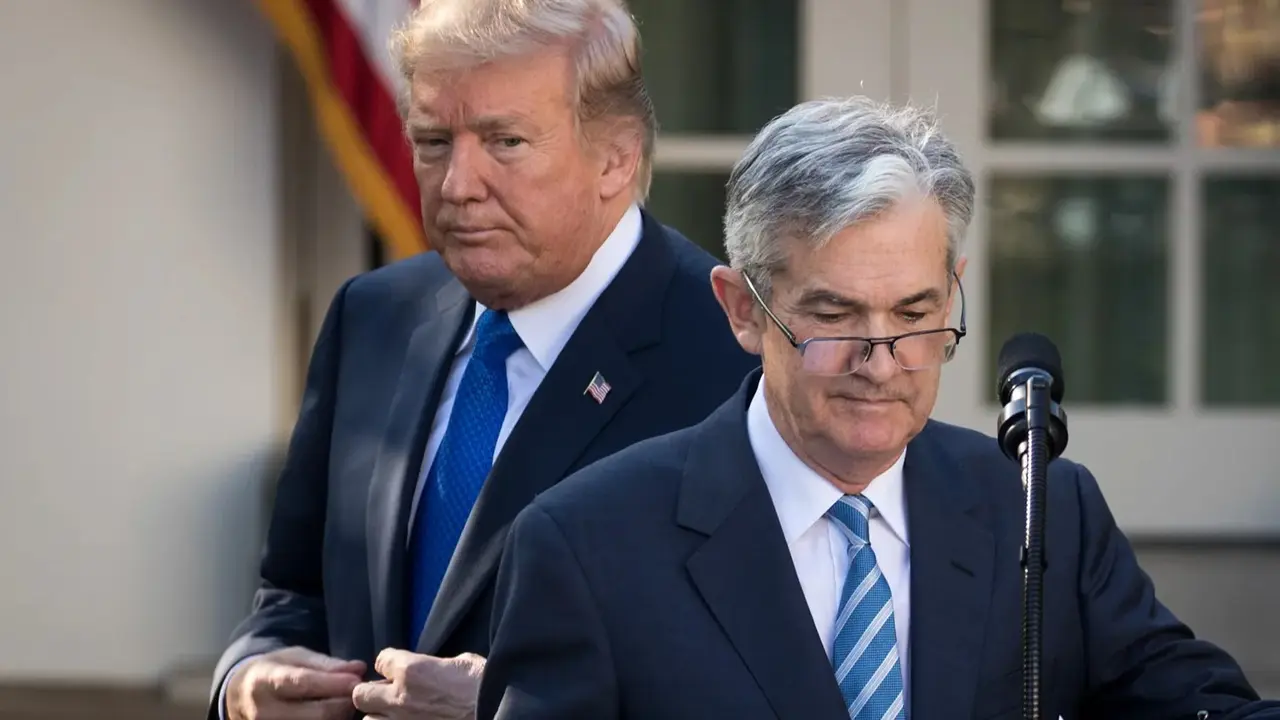Updated 18 April 2025 at 12:01 IST
Why Trump Wants Fed Chair Jerome Powell Out?
While Trump did not confirm plans to fire Powell, his comments have reignited concerns over the independence of the Federal Reserve.
- Republic Business
- 2 min read

President Donald Trump has intensified his criticism of Federal Reserve Chairman Jerome Powell, signaling that he may seek to remove him in the near term. The renewed attacks reflect Trump’s growing frustration with the central bank’s approach to interest rates, inflation, and what he perceives as “poor economic management”.
Speaking to reporters from the Oval Office, Trump made his dissatisfaction clear. He accused Powell of reacting “too slowly” to “evolving economic conditions”.
“I don’t think he’s doing the job. He’s too late, always too late,” Trump said in a recent interview. “I’m not happy with him. I let him know it, and if I want him out, he’ll be out of there real fast, believe me.”
While Trump did not confirm plans to fire Powell, his comments have reignited concerns over the independence of the Federal Reserve—a foundational principle of US monetary policy.
Advertisement
At the core of Trump’s criticism is Powell’s handling of interest rates. Trump has long argued that high borrowing costs are stifling economic growth and squeezing American consumers. He’s pointed to moves by the European Central Bank to cut rates, arguing the US should do the same to remain competitive.
Advertisement
Trump has also voiced frustration over the persistence of inflation, blaming the Fed for not acting sooner to control price surges that have affected everyday Americans. Trump's critics, however, claim that the US president is using Powell as a symbol of broader “economic mismanagement” under the Biden administration, which ended in late 2024.
Despite nominating Powell in 2017, Trump has repeatedly expressed regret over the decision, labeling him a “disaster” and “no friend of mine.”
Powell, reappointed by President Joe Biden in 2022, has maintained that the Fed’s policies are guided strictly by data—not political pressure. In a November news conference, Powell was asked if he would resign at the request of any president. His answer was simple: “No.”
Experts caution that while the Federal Reserve Act allows for removal “for cause,” such grounds typically involve misconduct or incapacity—not policy disagreements. Any attempt to force Powell out could spark a constitutional and legal battle over the central bank’s independence.
Published By : Avishek Banerjee
Published On: 18 April 2025 at 11:34 IST
